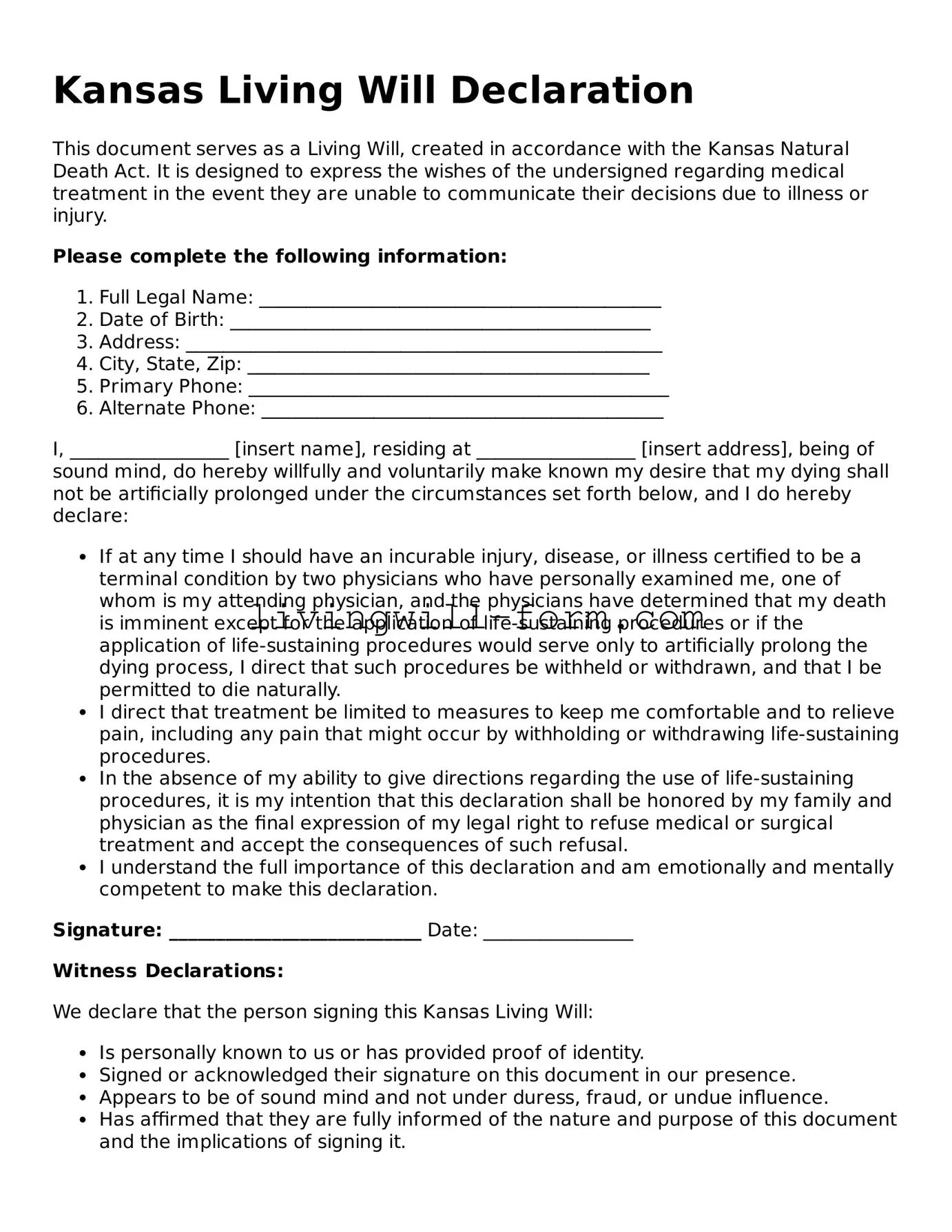Kansas Living Will Declaration
This document serves as a Living Will, created in accordance with the Kansas Natural Death Act. It is designed to express the wishes of the undersigned regarding medical treatment in the event they are unable to communicate their decisions due to illness or injury.
Please complete the following information:
- Full Legal Name: ___________________________________________
- Date of Birth: _____________________________________________
- Address: ___________________________________________________
- City, State, Zip: ___________________________________________
- Primary Phone: _____________________________________________
- Alternate Phone: ___________________________________________
I, _________________ [insert name], residing at _________________ [insert address], being of sound mind, do hereby willfully and voluntarily make known my desire that my dying shall not be artificially prolonged under the circumstances set forth below, and I do hereby declare:
- If at any time I should have an incurable injury, disease, or illness certified to be a terminal condition by two physicians who have personally examined me, one of whom is my attending physician, and the physicians have determined that my death is imminent except for the application of life-sustaining procedures or if the application of life-sustaining procedures would serve only to artificially prolong the dying process, I direct that such procedures be withheld or withdrawn, and that I be permitted to die naturally.
- I direct that treatment be limited to measures to keep me comfortable and to relieve pain, including any pain that might occur by withholding or withdrawing life-sustaining procedures.
- In the absence of my ability to give directions regarding the use of life-sustaining procedures, it is my intention that this declaration shall be honored by my family and physician as the final expression of my legal right to refuse medical or surgical treatment and accept the consequences of such refusal.
- I understand the full importance of this declaration and am emotionally and mentally competent to make this declaration.
Signature: ___________________________ Date: ________________
Witness Declarations:
We declare that the person signing this Kansas Living Will:
- Is personally known to us or has provided proof of identity.
- Signed or acknowledged their signature on this document in our presence.
- Appears to be of sound mind and not under duress, fraud, or undue influence.
- Has affirmed that they are fully informed of the nature and purpose of this document and the implications of signing it.
Witness 1: Signature: ___________________________ Date: ________________
Print Name: ___________________________________________________
Witness 2: Signature: ___________________________ Date: ________________
Print Name: ___________________________________________________
This document is intended to be a legally binding document that will be recognized by healthcare providers and legal entities within the state of Kansas. By signing this document, I acknowledge that I have been fully informed of the nature and purpose of this declaration and the implications of creating a Living Will.

